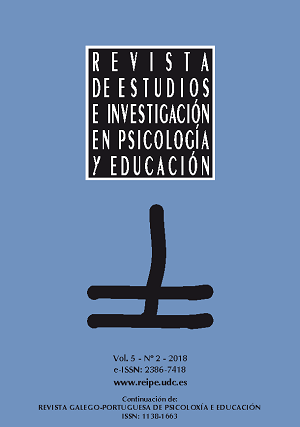Parental Alienation Syndrome: A critique
Main Article Content
Abstract
Keywords:
Downloads
Article Details
References
American Psychiatric Association. (2013). Diagnostic and Statistical Manual of Mental Disorders, Fifth Edition. Arlington, VA: American Psychiatric Association.
American Psychological Association. (1996). Report of the American Psychological Association Presidential Task Force on Violence and the Family. Washington, DC: APA.
Bruch, C.S. (2001). Parental Alienation Syndrome and Parental Alienation: Getting It Wrong in Child Custody Cases. Family Law Quarterly, 35, 527-552. https://doi.org/10.2139/ssrn.298110
Campbell, R. J. (1989). Psychiatric dictionary (6th ed.). New York and Oxford: Oxford University Press.
Emery, R. E. (2005). Parental Alienation Syndrome: Proponents Bear the Burden of Proof, 43, Family Court Review, 8, 11-12. https://doi.org/10.1111/j.1744-1617.2005.00002.x
Emery, R. E., Otto, R. K., & O'Donohue, W. T. (2005). A critical assessment of child custody evaluations: Limited science and a flawed system. Psychological Science in the Public Interest, 6(1), 1-29. https://doi.org/10.1111/j.1529-1006.2005.00020.x
Dallam, S. J. (2002). Crisis or creation? A systematic examination of false memory syndrome. Journal of Child Sexual Abuse, 9(3-4), 9-36. https://doi.org/10.1300/J070v09n03_02
Dalton, C., Drozd, L., & Wong, F. (2006). Navigating Custody and Visitation Evaluations in Cases with Domestic Violence: A Judge’s Guide (Rev. ed.). Reno, NV: National Council of Juvenile & Family Court Judges.
Foa, E. B., Hembree, E. A., & Rothbaum, B. O. (2007). Prolonged exposure therapy for PTSD: Emotional processing of traumatic events. New York City, New York: Oxford University Press.
Foa, E. B., Steketee, G., & Rothbaum, B. O. (1989). Behavioral/cognitive conceptualizations of post-traumatic stress disorder. Behavior Therapy, 20, 155–176. https://doi.org/10.1016/S0005-7894(89)80067-X
Gardner, R.A. (1992a). The Parental Alienation Syndrome: A Guide for Mental Health and Legal Professionals. Cresskill, NJ: Creative Therapeutics.
Gardner, R.A. (1992b). True and False Accusations of Child Sex Abuse. Cresskill, NJ: Creative Therapeutics.
Gardner, R. A. (2001). Parental alienation syndrome (PAS): Sixteen years later. In Academy Forum (Vol. 45, No. 1, pp. 10-12).
Gardner, R. A. (2004a). Commentary on Kelly and Johnston's “The alienated child: A reformulation of parental alienation syndrome”. Family Court Review, 42(4), 611-621. https://doi.org/10.1177/1531244504268711
Gardner, R. A. (2004b). The relationship between the parental alienation syndrome (PAS) and the False Memory Syndrome (FMS). The American Journal of Family Therapy, 32(2), 79-99. https://doi.org/10.1080/01926180490424181
Gould, J.W. (2006). Conducting Scientifically Crafted Child Custody Evaluations (2nd ed.). Sarasota, FL: Professional Resource Press.
Johnston, J. R., & Kelly, J. B. (2001). The alienated child: A reformulation of parental alienation syndrome. Family Court Review, 39(3), 249-266. https://doi.org/10.1111/j.174-1617.2001.tb00609.x
Johnston, J. R., & Kelly, J. B. (2004). Commentary on Walker, Brantley, and Rigsbee's (2004) “A Critical Analysis of Parental Alienation Syndrome and Its Admissibility in the Family Court”. Journal of Child Custody, 1(4), 77-89. https://doi.org/10.1300/J190v01n04_05
Meier, J. S. (2009). Parental alienation syndrome and parental alienation: Research reviews. Retrieved from http://www.vawnet.org/Assoc_Files_VAWnet/AR_PAS.pdf
Merriam-Webster Medical Dictionary. (2017, December 1). Syndrome. Retrieved December 23, 2017, from Meriam-Webster Medical Dictionary: https://www.merriam-webster.com/dictionary/syndrome#medicalDictionary
Miller, B. F. (1992). Encyclopedia and dictionary of medicine nursing and allied health (95th ed.). Philadelphia, PA: Saunders.
Ministerstvo Spravodlivosti Sr. (2011). The Declaration on so Called ‘Parental Alienation Syndrome’. Retrieved December 9, 2017, from www.justice.gov.sk/Stranky/aktualitadetail.aspx?announcementID=2081
Monson, C. M., Resick, P. A., & Rizvi, S. L. (2014). Posttraumatic Stress Disorder. In D. H. Barlow (Ed.), Clinical handbook of psychological disorders (pp. 62-114). New York City, New York: Guilford Press.
Myers, J., Berliner, L., Briere, J., Hendrix, C.T., Jenny, C., & Reid, T.A. (Eds.). (2002). The APSAC Handbook on Child Maltreatment (2nd ed.). Thousand Oaks, CA: Sage Publications.
O’Donohue, W., Benuto, L., & Bennett, N. (2016). Examining the validity of the parent alienation syndrome. Journal of Child Custody, 13, 113-125. https://doi.org/10.1080/15379418.2016.1217758
O'Donohue, W. T., & Willis, B. M. (In Press). Problematic images of science in undergraduate psychology textbooks: How well is science understood and depicted? Archives of Scientific Psychology.
Persons, J. B. (2008). The case formulation approach to cognitive-behavioral therapy. New York, NY: Guilford Press.
Popper, K. R. (1963). Conjectures and refutations. London, UK: Routledge and Kegan Paul.
Ragland, E.R., & Field, H. (2003). Parental Alienation Syndrome: What professionals need to know. Update Newsletter, 16(6). Alexandria, VA: National District Attorneys Association’s American Prosecutors Research Institute. Retrieved December 24, 2017, from http://www.ndaa.org/ncpca_update_v16_no6.html
Rueda, C.A. (2004). An Inter-Rater Reliability Study of Parental Alienation Syndrome. The American Journal of Family Therapy, 32, 391-403. https://doi.org/10.1080/01926180490499864
Snodgrass, Melinda M. (Writer), & Scheerer, Robert. (Director). (1989). Measure of a Man [Television series episode]. In Roddenberry, Gene. (Executive Producer), Star Trek: The Next Generation. Los Angeles, CA: Columbia Broadcasting System.
Thoennes, N., & Tjaden, P. (1990). The Extent, Nature, and Validity of Sexual Abuse Allegations in Custody/Visitation Disputes. Child Abuse and Neglect, 14, 151-163. https://doi.org/10.1016/0145-2134(90)90026-P
Wallerstein, J.S., Lewis, J.M., & Blakeslee, S. (2000). The Unexpected Legacy of Divorce: A 25 Year Landmark Study. New York: Hyperion Books.
World Health Organization. (2016). ICD-10 Version: 2016. Retrieved from WHO | ICD-10: http://apps.who.int/classifications/icd10/browse/2016/en


